
- Shandong Loyal Industrial Co.,Ltd.
- SHORT-CUT PASTA PRODUCTION LINE LONG-CUT PASTA PRODUCTION LINE INSTANT PASTA PRODUCTION LINE
Home> Application> Revolutionizing Pasta Manufacturing: Unique Fully Automatic Solutions for Spaghetti Production

Revolutionizing Pasta Manufacturing: Unique Fully Automatic Solutions for Spaghetti Production
Revolutionizing Pasta Manufacturing: Unique Fully Automatic Solutions for Spaghetti Production
Introduction
Shandong Loyal Industrial Co., Ltd. has incorporated advanced technologies from BUHLER and GEA(PAVAN) in the production of its macaroni.In the realm of pasta manufacturing, a call for revolution resounds. The significance of fully automatic solutions in this transformation cannot be overstated. This article unveils the imperative need for change, providing an overview of the unique approach that focuses on the heart of the matter—spaghetti production.
Challenges in Traditional Spaghetti Production
Traditional methods of spaghetti production face inherent limitations and inefficiencies. The environmental impact and resource consumption associated with conventional pasta manufacturing underscore the demand for innovation in the entire process. It is within these challenges that the seeds of a revolution are sown.

The Rise of Fully Automatic Solutions
In defining fully automatic solutions within the context of pasta manufacturing, we witness the dawn of a new era. This transformation is not just about embracing technology; it's a paradigm shift. Technological advancements are the architects shaping the evolution of spaghetti production. The comparison between traditional and fully automatic approaches reveals a stark contrast in efficiency, precision, and adaptability. As automation rises, it becomes a beacon of progress, offering a pathway to redefine how spaghetti is produced and setting new standards in the industry.
Benefits of Fully Automatic Spaghetti Production
The benefits derived from fully automatic solutions herald a revolution in spaghetti production. Streamlined workflows characterize a future where efficiency is no longer an aspiration but a tangible outcome. Increased production efficiency becomes the norm, satisfying the demands of a growing market. The precision and consistency achieved through automation elevate the quality of the end product, reshaping consumer expectations. Furthermore, the reduction in environmental impact and resource consumption aligns with the broader goals of sustainable manufacturing. In essence, the adoption of fully automatic solutions not only transforms the manufacturing process but also redefines the very essence of how spaghetti is produced and perceived.
Technological Innovations Driving the Revolution
The ongoing revolution in spaghetti production is fueled by a continuous stream of technological innovations. Cutting-edge technologies play a pivotal role in the quest for fully automatic solutions. The exploration of these innovations delves into the integration of artificial intelligence and robotics. Artificial intelligence becomes the cognitive engine, optimizing processes with unprecedented adaptability and efficiency. Robotics, on the other hand, transforms the physical aspect of production, ensuring precision and consistency in every strand of spaghetti. Sustainable practices and eco-friendly initiatives emerge as integral components of modern pasta manufacturing, aligning the industry with the principles of responsible and environmentally conscious production.

Real-world Applications and Success Stories
The theoretical prowess of fully automatic solutions finds its validation in real-world applications and success stories. Pasta manufacturing facilities, once reliant on traditional methods, now stand as testament to the transformative impact of embracing automation. Examples abound of facilities that have not only increased their efficiency but have also elevated their sustainability quotient. Case studies serve as compelling narratives, showcasing the journey of these facilities towards optimized processes and reduced environmental impact. Insights from industry leaders who have championed these unique implementations become valuable lessons for others contemplating a similar transformation. These real-world applications and success stories form the living proof of the power of fully automatic solutions in reshaping the landscape of spaghetti production.
Challenges in Implementing Fully Automatic Solutions
Yet, challenges persist on the road to a fully automated future. Technological integration hurdles and potential setbacks loom large. Addressing workforce concerns and upskilling become imperative for a seamless transition from traditional to automated spaghetti production.
As we gaze into the future, emerging technologies shape the trajectory of automated pasta manufacturing. Anticipated developments in efficiency, sustainability, and quality control pave the way for a redefined landscape of spaghetti production. Fully automatic solutions become the architects of this impending transformation.
Conclusion
In conclusion, the revolutionary impact of fully automatic solutions on spaghetti production is undeniable. This journey toward more efficient and sustainable pasta manufacturing processes signifies not just an evolution but a seismic shift. As we close this exploration, the echoes of change resonate, heralding a future where pasta production stands as a testament to innovation and progress.

Common Questions about Spaghetti Production
Q1: How do fully automatic solutions enhance efficiency in spaghetti production?
Fully automatic solutions optimize workflows, increasing production efficiency by streamlining processes and minimizing manual interventions.
Q2: What role does artificial intelligence play in automated spaghetti production?
Artificial intelligence integrates seamlessly into automated processes, enhancing precision, adaptability, and overall efficiency in spaghetti production.
Q3: Are there real-world examples of successful fully automatic spaghetti production implementations?
Yes, numerous pasta manufacturing facilities have successfully implemented fully automatic solutions, achieving significant improvements in efficiency and sustainability.
Q4: How can the workforce adapt to the transition from traditional to automated spaghetti production?
Addressing workforce concerns involves upskilling initiatives and training programs to ensure a smooth transition to automated processes.
Q5: What sustainable practices are employed in modern pasta manufacturing?
Modern pasta manufacturing embraces eco-friendly initiatives, incorporating sustainable practices to minimize environmental impact and resource consumption.
Contact Us

- Shandong Loyal Industrial Co.,Ltd.
- Telephone+86 13176674591
- Email[email protected]
- WhatsApp+86 13176674591
- WeChat13176674591
- AddressC623, Jiahui Global Plaza, No. 548, Beiyuan Street, Tianqiao District, Jinan City, Shandong Province
- Factory AddressADD -300m North of Zhangxia Industrial Park, Binhe Road, Zhangxia Town, Changqing District, Jinan
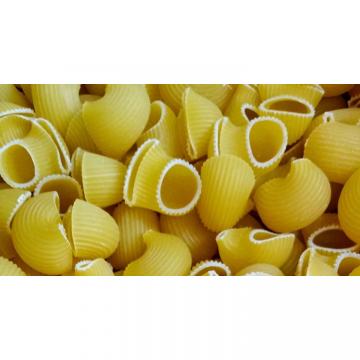

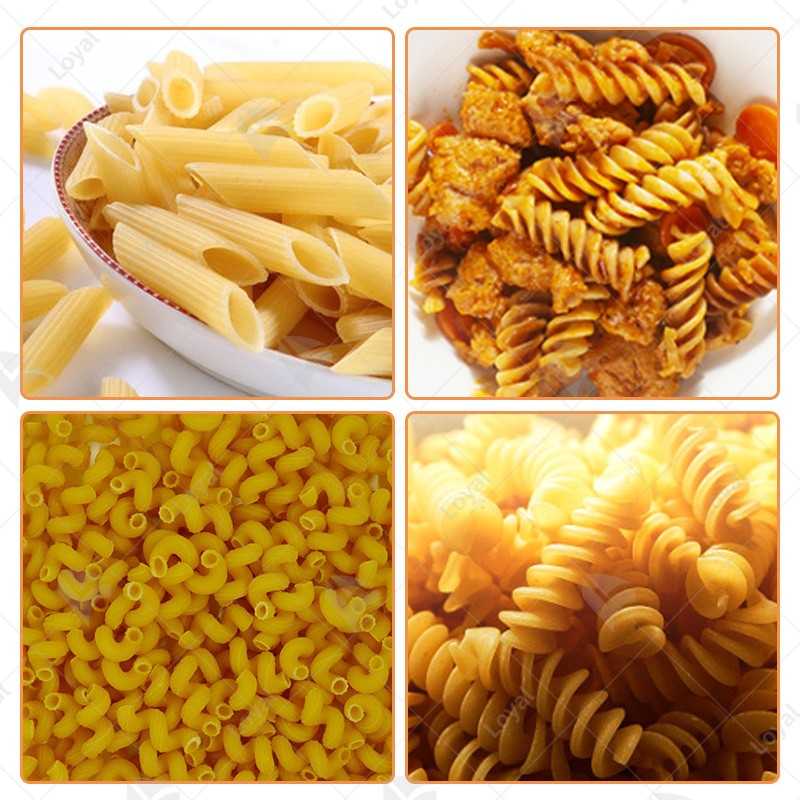

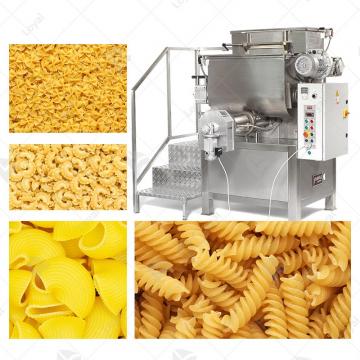
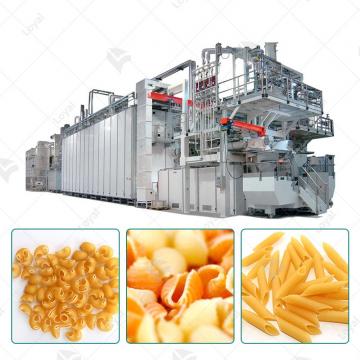 VACUUM PASTA EXTRUDER
VACUUM PASTA EXTRUDER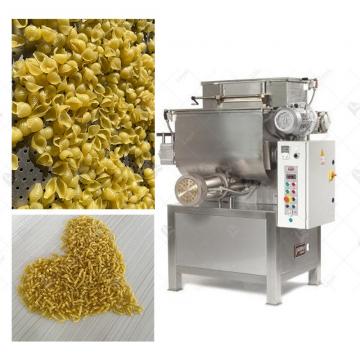 PRECOOKED PASTA PRODUCTION LINE
PRECOOKED PASTA PRODUCTION LINE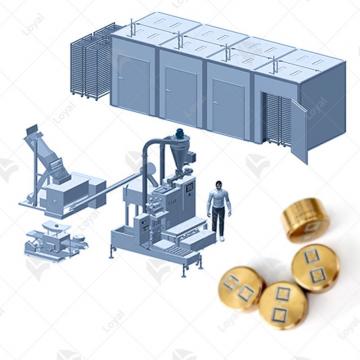 Spaghetti Pasta Production Line
Spaghetti Pasta Production Line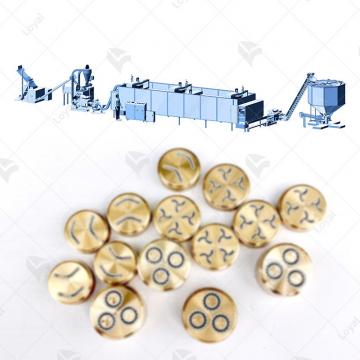 Short-Cut Pasta Production Line
Short-Cut Pasta Production Line